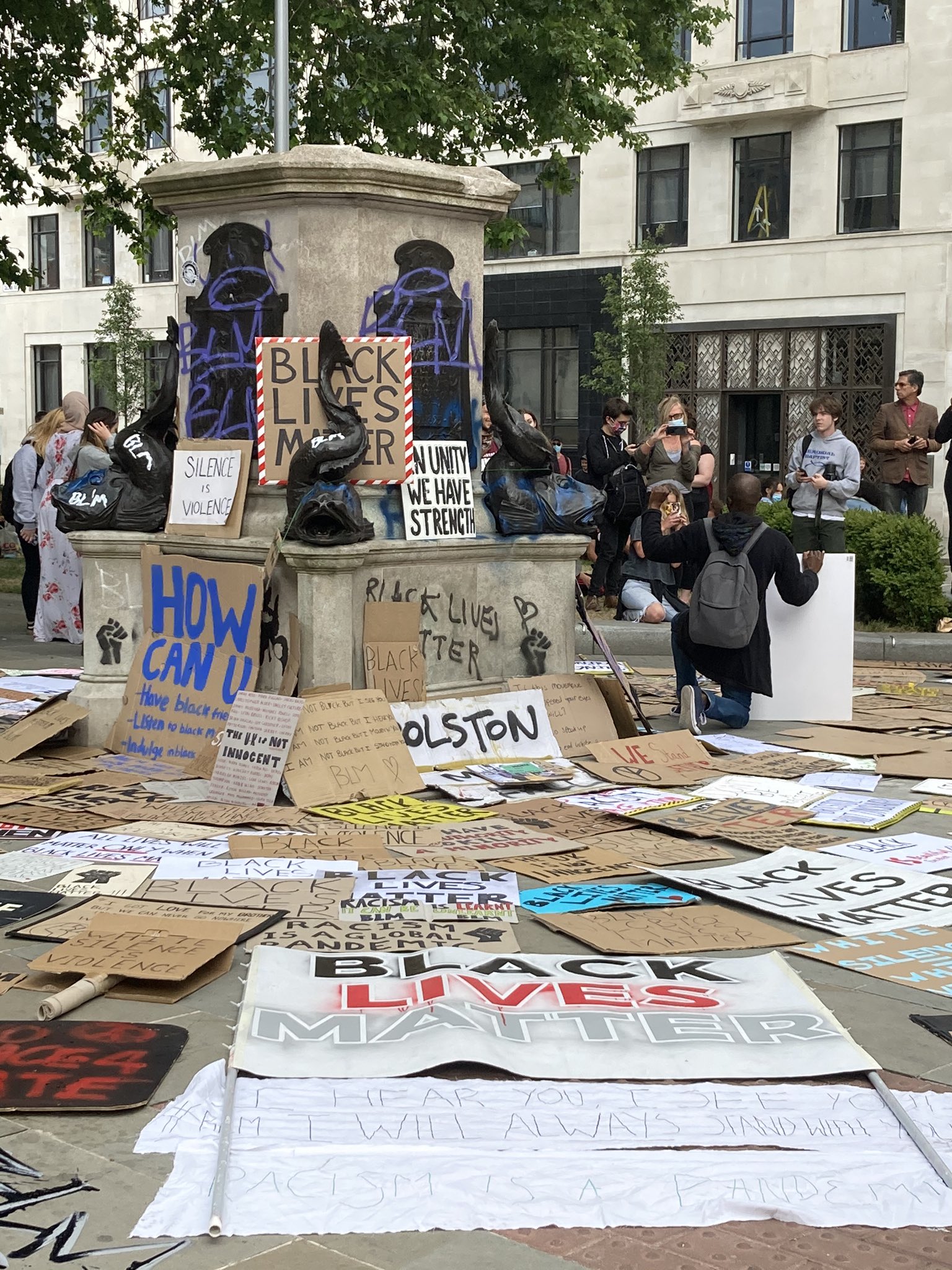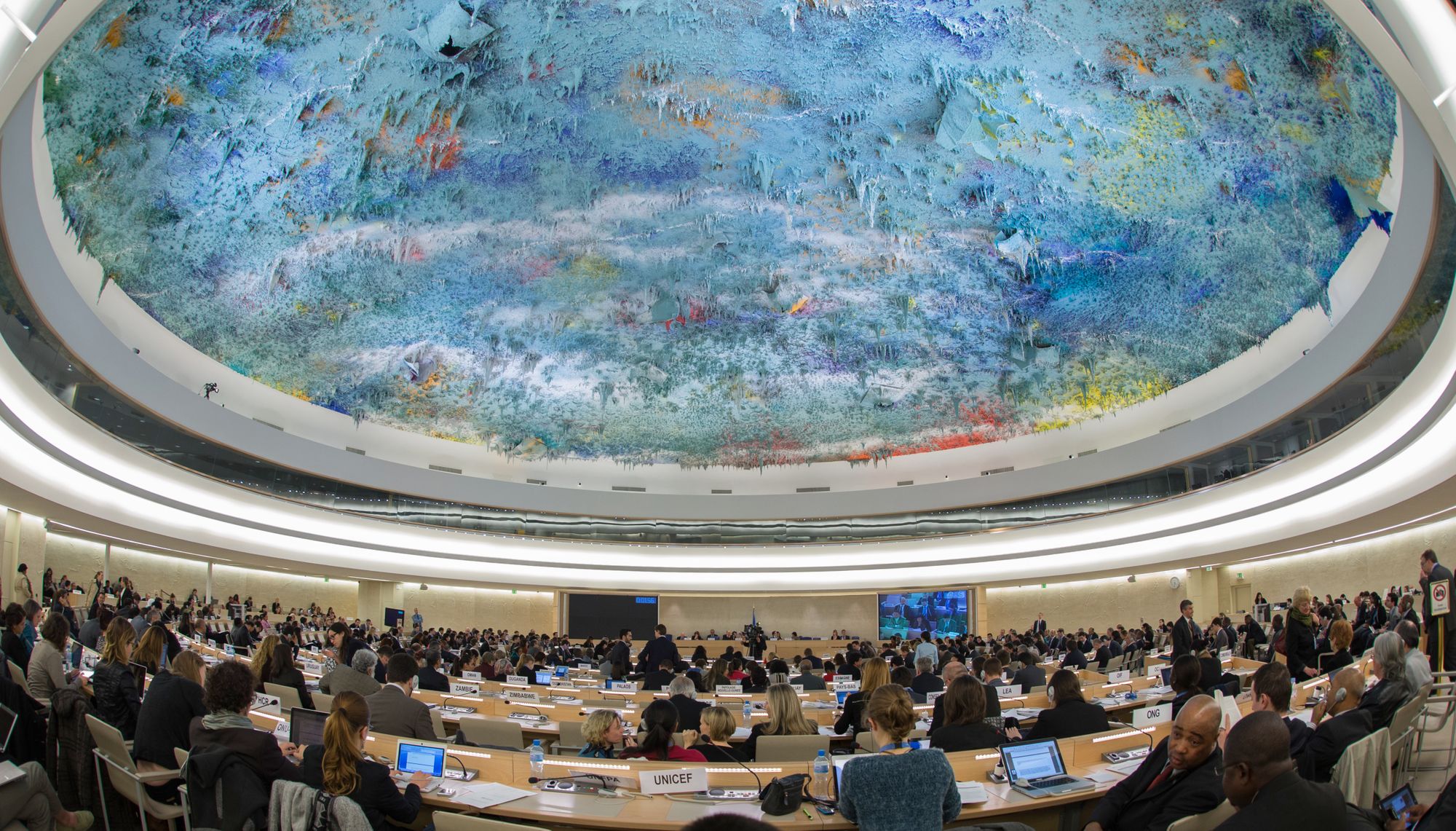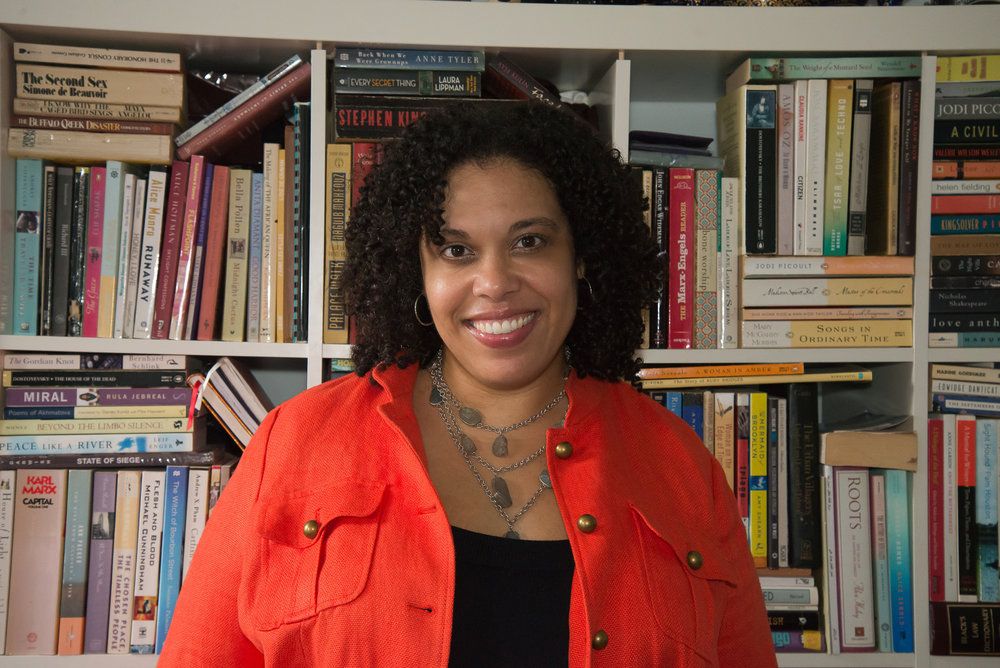Dominique Day is the Chair of the United Nations Working Group of Experts on People of African Descent. She is also the founder and executive director of Daylight, which aims to promote justice across borders, boundaries, and sectors.
What motivated you to found Daylight, and what are some of its most significant achievements over the last couple of years?
I've been in practice for a little over 20 years, and I found myself wanting to have a platform where I could draw on all the different skills I felt like I developed. Additionally, I felt that our approaches to systemic racism needed to be more interdisciplinary, driven by complex solutions and not necessarily constrained by our roles as lawyers, litigators, or policy folk. I found a lot was lacking in the way that legal and policy institutions approached capacity building, so Daylight became a space to really build out both an implementation arm where we can build capacity but then also a much more complex way to think about strategy or to think about what it really looks like to make durable change.
In terms of accomplishments, I've definitely worked on a good number of projects looking at strategies around systemic racism in specific organizations or institutions. We've done some interesting research studies that are hopefully leading to practice changes. One of the instruments we use is the KAP study, knowledge, attitudes, and practices. These are big studies of a sector to look at how people's knowledge, attitudes, and practices influence a particular issue, whether it's race or gender-based violence. Obviously, you're getting a lot of qualitative data, but if you project across a large number of people in the way you collect it, it can be quantified. Then, you can perform very sophisticated statistical analysis to really think about where our points of leverage were or what are the interesting correlations.
Being able to do that internationally has been really great. We did a WHO report a few years ago with an NGO in Afghanistan. One of the most fascinating things we found was completely unexpected. We were looking at doctors as first responders to gender-based violence, and we interviewed people in every single clinic in this particular region. We found that doctors who understood that men could be raped were significantly more likely to address gender-based violence and the possibility of intimate partner violence with their female patients. The ways in which all of these things interconnect and really play on each other has been really satisfying, especially for my intellectual curiosity.
It doesn't seem to me that there's been a lot of groups like this doing international work and working on racial justice in an international context, not just an American domestic content, and I think that's something that's really unique and really interesting.
Yeah, of course. As we found out very quickly, protests that sprung up in the US were quickly mirrored by protests all over the world. While I think Americans might want to see that as some kind of solidarity or a gift, people are protesting about their own local conditions and the ways in which white supremacy and anti-Black racism manifests locally in their countries. We've seen really compelling and provocative examples of those. We’ve seen videos coming out in England and Canada. There’s been really interesting stuff happening in Brazil as well. In all, being able to take a look at it globally has been very interesting.

Let’s turn to your work on the United Nations Working Group of Experts on People of African Descent. That’s definitely a mouthful to say.
That’s definitely a United Nations name. The United Nations operates by consensus, so it has long bulky names and long bulky documents. This is a global body that's looking at anti-Black racism as it manifests globally. Technically, we're looking at the ways in which people of African descent can enjoy and express their human rights, but we focus on the violations of that a lot. We do country visits, where we visit a country and do a deep dive into the ways that people of African descent experience their human rights in a local context. We’ll speak with the government, we’ll speak with civil society. We go to all the towns that have a sizable population of people of African descent. We talk to anybody who's going to talk to us. We meet in the morning, and we meet at night. Finally, we prepare an analysis which we share with the government and ultimately the entire world. We do a good amount of individual work through our communications procedures, and then we obviously report to the Human Rights Council on the status of people of African descent globally.
What were some of the more salient country visits that you've done? Were there any surprising findings that you found from those country visits?
To be honest, since COVID-19, everything has been shut down and all UN travel was stopped, so our last visit was basically three days before the quarantine went into place. I was in Peru at the end of February and beginning of March. We did a country visit there, which was great. An interesting thing to know is, irrespective of the level of development of these countries, we see very similar stories for people of African descent. For example, we were in Belgium last year, which is at the very top of the development spectrum. Peru is in the bottom third, yet we hear a lot of the same stories from people. We hear people of African descent lacking access to education, access to health care, people unable to get the jobs at the appropriate education level, and people being discriminated against explicitly and openly because of the color of their skin.
In Peru, we found an almost entire denial of any public accommodations or public goods. Public services were almost entirely cut off from communities of African descent. Even where they were acknowledged initially, they were often subsequently ignored. For example, when a big agricultural company comes in to institute a big project somewhere in the rural areas of Peru, there would be an environmental impact statement, which has to happen, and there would be an acknowledgement that communities of African descent lived there. They would talk about the food, the culture, the music. They would put pictures of people in traditional dress. But when the drought comes, the same companies are bringing in their big machines, drilling extra deep wells, and sapping the water dry from all the communities of African descent. The same companies are working people from five in the morning until eight o’clock at night and not paying what they deserve. The same companies are using a lot of sharecropping there. The companies are bargaining the contracts in one currency but paying out in another to constantly maximize their profit.
What's interesting is when we go to Belgium, the other end of the spectrum, you're seeing the exact same thing. You're seeing people with college and graduate degrees working as laborers. You're seeing children systematically diverted into vocational education, so kids of parents who went to college or graduate school, often in Africa, are ultimately being pushed out of mainstream education. When the parents fight about it, they're being threatened with child welfare cases. They're being threatened with anything that teachers can come up with. This is a systematic practice. Kids who do make it to college are routinely denigrated and suffer from this culture of low expectations from their professors. People who go to the job centers are told, “We can't place you because you don't look Belgian. Companies don't want you in their front office.”
As Americans, we have an idea that maybe some of these practices are practices of the past. But, not only are we seeing them in the United States, we’re certainly seeing them all over the world. I think what's as troubling is that every time we present this to governments, they don't believe it. They often ask us to confirm that it happened in this town or in their spaces. There's one space where women were seeking to report domestic violence, and the police were telling them, “Well, you're African. Isn't this what you're used to? You’re fine,” and they wouldn’t take the complaints. I talked with the government in that case after civil society, and I said, “This is what we’re hearing in your town.” They absolutely couldn't believe it. In all, there’s a massive invisibility, and the ways in which white supremacy has been exploited is global.
Have there been any instances where the Working Group has been successful in changing practices or procedures?
I don't know what changes things, but after our reports come out, we usually see some acknowledgement from the government that they need to do more. In Belgium, for example, immediately after our report came out, there was an apology for a very specific colonial atrocity. These mixed-race children who were born to Belgian fathers and African mothers in Congo were taken from their mothers and forcibly transferred to Belgium as children of these white fathers. It's something that the Catholic Church has been involved in; the Catholic Church apologized many years ago. Very recently, since these new uprisings, and given our report which they've referenced again publicly, they issued a statement of regret for colonialism, which is not an apology.
I think our hope is that we offer a set of not just analyses, but also tools for the government and also for civil society to rethink the ways in which they can see and respect people of African descent. A lot of what we're doing is really amplifying for them the ways that the trade and trafficking of enslaved Africans persists, or these legacy mindsets persist. A lot of our reports very openly talk about the ways in which these societies are treating people of African descent, often very openly with reference to a second class status, a lesser status, or a slave-like status, and how much of that goes back to a national image crafted in a moment of enslavement.
Do you think the United Nations overall as a body has been doing enough to address these issues?
Absolutely not. There was this debate, maybe two weeks ago [from June 15-17, 2020] in the Human Rights Council as the uprisings happened here in the United States and elsewhere. The African nations approached the Human Rights Council and asked for an urgent debate and a resolution around systemic racism in law enforcement and elsewhere in the United States and globally. This debate was held, and many, many member states got up and said Black lives matter. Many, many member states spoke very compellingly about their commitments to anti-racism. Several states specifically mentioned the reporting we had done in our country visits and their commitments to implementing our recommendations. All of that is great, and the debate took two days.

However, the resolution at the end of the debate was not operational. The resolution talked a lot about the death of George Floyd as a trigger for rethinking how we think about racism and how pervasive it is as a systemic violator of human rights, but at the same time, the resolution itself did not actually call for significant operational investments. There had been talk about a commission of inquiry, which is a fact-finding body, but that was removed. In the end, what it looks like is that the Office of the High Commissioner for Human Rights will do a hopefully robust analysis, investigation, and report, and it will be reporting to the Human Rights Council on that. That's something, but the reason, of course, that the resolution was not as robust as initially envisioned had a lot to do with the same structures that are perpetuating anti-Black racism. The power differential between the Global North and the Global South also strong-arms countries into watering down a resolution to something that is much less robust and much less operational than it could be.
Our mandate allows for two country visits a year and asks us to do a whole bunch of other reporting, all of which we do, but we're also unpaid. We also have to find ways to feed ourselves in the meantime. Even inside the United Nations, if you ask people, you’ll hear an acknowledgment, but outside of things like the Anti-Racism section, very few human rights personnel really see race as a driving factor in their work, even though we know that race persists, globally, as one of the clearest metrics for lesser access to human rights.
To be honest, nobody's doing enough. I'm not sure who is doing enough. I think a lot of activists are doing enough. I think it's on us who care about human rights, for us who have institutional affiliations, to leverage that activism into support. But, the United Nations is absolutely not doing enough nor is any government on the planet.
Well, I was going to ask if there are any countries that had any bright spots in this area, but I'm assuming from your previous answer that there is not too much going on.
I feel like I do actually sound very negative, but I'm a very optimistic person. There are many countries that are doing something here and there. We’ve seen really interesting Truth and Reconciliation Commissions happening in some countries in Africa. I always say that people love to denigrate South Africa, but to me, South Africa is a miracle. People forget how unlikely the arc that I've been able to see in my lifetime is, from Mandela in prison to the space we have today.
I have seen really impressive local government actions. There's definitely spaces that have really embraced this idea that racism requires attention and that is all of our jobs to actually do something about it. I think we've seen some interesting things coming out of Cuba. I've been really impressed from what I've seen in Nova Scotia; it has made real commitments to dismantling systemic racism, at least before the coronavirus pandemic. Brazil is not a good example today because it's quickly unraveling, but we are seeing really interesting Afro-Latinx activism and civil society throughout Latin America and South America. I think that's actually as important as what the government does or does not do. There's a Black vice president in Costa Rica, Epsy Campbell Barr, who has chosen to be a leader on calling out racial issues and doing more about it.
We do have really incredible people who offer both leadership and commitment. And the question is, how much scope can they really have? How much support do they really get? It's not a hopeless issue at all, yet nobody's actually doing enough.
Cover image: Credit Daylyt.




